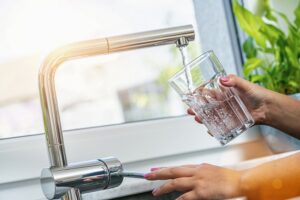
https://rcphotostock.com – © rcphotostock (3231)
Staying hydrated seems like a no-brainer: when you’re thirsty, drink water. Other than that, you might not think it plays a big role in your health. But you’d be mistaken.
Hydration levels can have huge implications for older adults. There is research to suggest that dehydration can boost the risk of a number of health problems, including stroke complications and more. Adequate water is required for healthy cell and organ function, while estimates suggest that between one-third and one-half of older adults are dehydrated.
Advertisement
The risk of dehydration increases for a number of reasons, some having to do with widely held misconceptions. Two such misconceptions are that water isn’t that important and that thirst is an accurate indicator of your body’s water needs.
With age, it’s easy to become less thirsty. This is one of the prime drivers of the close association between dehydration and age, as well as the complications it presents. One way to get over it is to look at fluid consumption as a discipline instead of desire. Making sure you have a glass every 90-minutes or so, regardless of thirst, is one way to avoid dehydration.
For those who might not enjoy the taste of water, you’ll be fine. Water is only one option. Fruits and vegetables are a great source—one apple has about a cup of water—and coffee, tea, and juice all contribute to hydration. In general, it’s recommended to avoid sugary beverages and alcohol, but even they can help keep you hydrated in some cases.
Perhaps the most effective way to monitor hydration is urine color. Clear or light yellow urine typically indicates you’re hydrated—darker yellow and beyond says you need some water.
Of course, aside from a lack of thirst, the fear of urinary incontinence might lead you to limit water intake. There are ways to strengthen your bladder, including counseling, that can offer relief if that’s the reason why you’re consuming less liquid than you should be. In general, women and men should try to get 8 and 10 glasses, respectively, on an average day.
